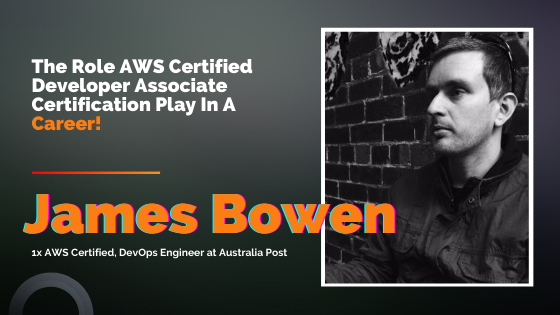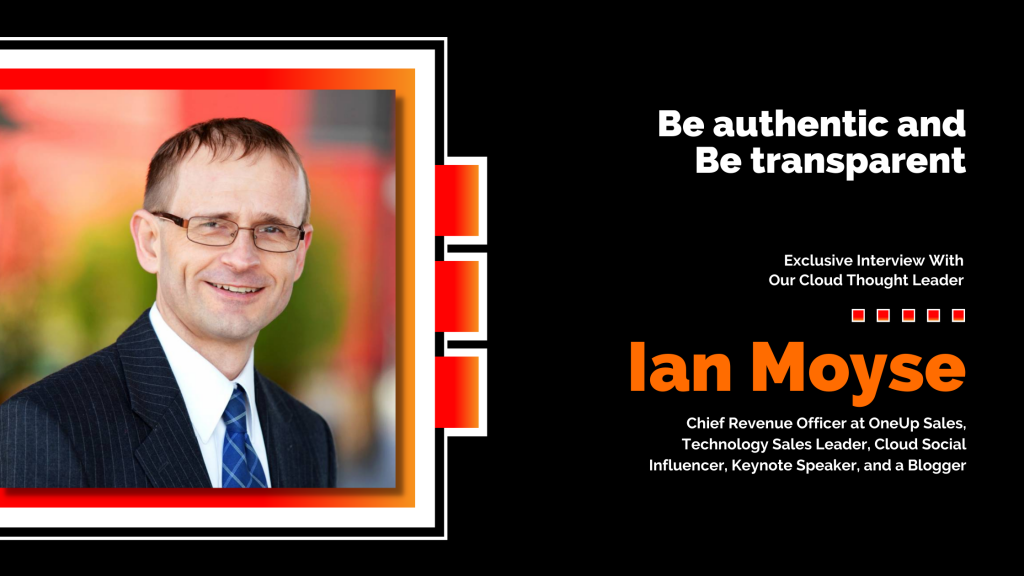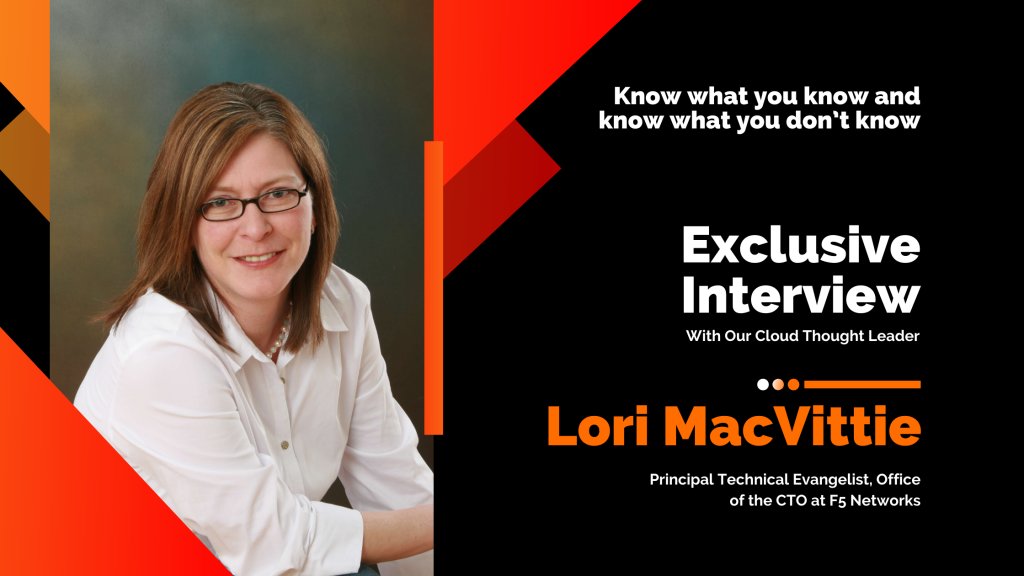Are you preparing for the AWS Certified Developer Associate examination? In this article, James Bowen is talking about how he started his preparation and what role it played in his career development.
James Bowen is a Java Developer/DevOps engineer at Australia Post. He is quite into the Meta Skills of Development which showcases the importance of learning how to learn, productivity hacks, career thinking, and etc.
In his blog LearnCodeRetain, he guides his followers on Productivity hacks, Career hacks, Learning Hacks, and also provides study guides and training.
Without further ado, let’s understand James Bowen’s experience with AWS Certified Developer Associate certification.
1. Which certification did you clear first and how did you start your preparation for it?
I did the AWS Developer associate one first. It made sense in my role as a senior developer and given that my employer uses AWS extensively. I hadn’t touched AWS before but was broadly aware of cloud concepts.
2. You have prepared for the exam while working. What was your schedule during your preparation period?
I allocated 45 mins a day before our daily standup as ‘my time’ to study or review my flashcards. I didn’t ask for permission. If my employer wanted my expertise they could help me pay for it, by letting me have that time. That said, I did give a bit back – I used my commute time and some personal time to do extra study.
3. What role does a certification play in your career?
TBH it hasn’t hugely affected my actual day to day role – because I’m so hands on with AWS. Where it has made a difference though is
- a point of difference on my resume for future jobs and
- knowing how to troubleshoot
- getting the big picture of which AWS technologies even exist/how they work at a high level.
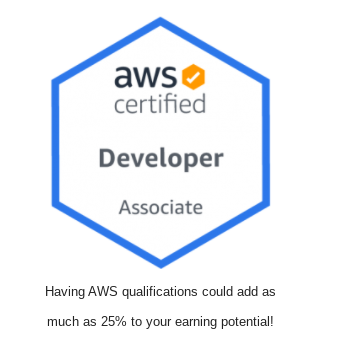
4. Any advice on designing the learning path? What factors should one keep in mind?
Be very clear on what you want to get out of your learning path. Do you want to really know the tech, or just get the piece of paper for career progression? Neither is right or wrong, just be clear about that.
There are some excellent courses by some names in the industry. If you just want to focus on the certification, I think their guides are better than mine and I’m sure you’ll learn loads on the way. However, I took the approach that I wanted to learn about Cloud technologies generally (NOT just AWS) and also to learn fundamentals and be able to troubleshoot. So my learning guide had a bit more ‘critical thinking in it’.
5. What are the main topics an aspirant should learn in depth for this exam?
From memory, Lambda, DynamoDB and CI/CD are the non-negotiables. As for the rest, it’s a hard question because the exam is mostly about breadth of knowledge.
6. In your opinion, how difficult was the exam? On a scale of 1-5 may be!
I used Whizlabs study guides and they were pretty close to what I got in the exam, so I’ll say a 3. For me personally it took a while to nail the practice, but then the exam was about the same difficulty (again for me personally) as the practice papers.
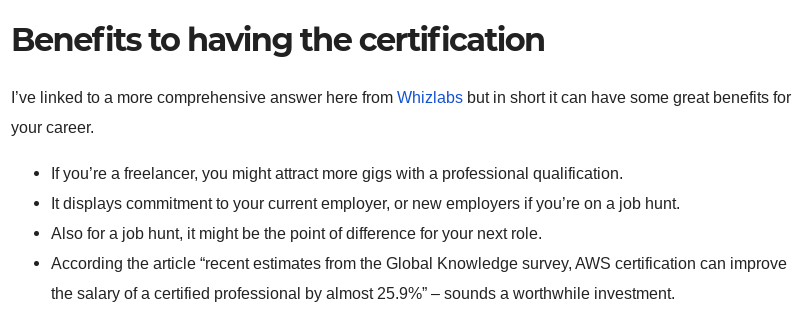
7. How do you think aspirants should be studying about each service/subject for this exam? Some services/subjects that should be covered in-depth and for some, just a basic knowledge is enough. Can you list those for the aspirants?
Mostly I’d go breadth, on these subjects. One tip here, and it stems from how we remember things. If we can’t understand we can’t remember. So if you test yourself and you’re struggling to remember concepts, that might be the time you need to go in a bit deeper on that subject. If you were going to bias your ‘depth time’ a little, then *maybe* DynamoDB/Lambda and CI/CD.
8. Which service was easy to learn and which one was difficult? Did you follow any different strategies based on difficulties?
It really depends on your familiarity with existing concepts. I struggled with DynamoDB because I was so used to relational databases, but Lambda was quite easy because I’d been doing things like containerisation and functional programing for a while, so the idea of ‘lightweight code’, and ‘small blocks of code’ and horizontal scaling wasn’t that hard for me to grasp.
9. Can you walk us through your certification path?
I am going for AWS Certified DevOps certification next because my job has gone that way. But personal life aim is making that a longer time goal than I originally planned.
10. In your opinion, what should a person keep in mind while choosing a certification to go for?
How is it going to help you do your job (and your next job?) and again, be honest with yourself about whether you’re lookin to use the certification for improving your hard skills or getting the piece of paper (there’s nothing wrong with either btw.)
11. What are the tips and tricks you have for anyone who is preparing for a professional certification?
- Have a study timetable.
- Estimate your time per subject before you start.
- Track your estimated vs actual time so you get a real feel for how long the entire study plan will take. Otherwise you’ll get demotivated.
- Remember that practice papers only help you learn those specific answers, you need to understand broad concepts. As it happens I’ve previously written about this.
- Also, don’t read the material once and move on. You need to test yourself, little and often to be able to recall it on-demand. I’ve written about active learning on my blog. Flashcards are your friend!
Read James Bowen’s article on Using Whizlabs Practice Tests for the AWS Developer Associate Exam!
12. You are aspiring to be a DevOps Architect. What attracts you to that job title?
I’m not going for that specific role in fact. But I’m trying to get more into DevOps because I think the industry has gone that way. I think I’m a better developer when I understand how a system is going to run. Knowing the moving parts helps me narrow down problems when troubleshooting. DevOps thinking helps with all that, in my opinion.
13. Which certification are you aiming for next?
I’m going for the DevOps certification because of my job. We use AWS CDK, CodePipeline, Kotlin, Python, ECS, Fargate, DynamoDB – I’m not just coding for AWS services any more! It just seems like a natural progression.
14. What is your advice for all cloud enthusiasts?
Narrow down your scope on your project – think about your goals – see my article on “Why you’re struggling to finish a development project” in fact!
15. What are your tips & tricks for everyone who is interested in taking this certification?
Same as any learning endeavour like this:
- Find the exam guide to see what you will be tested on.
- Check social media/check with colleagues as to what the big areas are.
- Test yourself actively (things like flashcards) rather than just passively reading content.
- Plenty of testing yourself, little and often.
16. How did you motivate yourself to prepare for examinations like this during this pandemic?
This didn’t really apply to me because I got the qualification just before Australia shut down. But I did write an ebook and create an audio course during the quiet period. So whilst family, friends and health should always come first, if you can, use the social distancing and lockdown to your advantage. Get some distraction free time and maximise that.
***
Thanks alot James Bowen! We wish you all the best!
- Top 20 Questions To Prepare For Certified Kubernetes Administrator Exam - August 16, 2024
- 10 AWS Services to Master for the AWS Developer Associate Exam - August 14, 2024
- Exam Tips for AWS Machine Learning Specialty Certification - August 7, 2024
- Best 15+ AWS Developer Associate hands-on labs in 2024 - July 24, 2024
- Containers vs Virtual Machines: Differences You Should Know - June 24, 2024
- Databricks Launched World’s Most Capable Large Language Model (LLM) - April 26, 2024
- What are the storage options available in Microsoft Azure? - March 14, 2024
- User’s Guide to Getting Started with Google Kubernetes Engine - March 1, 2024
